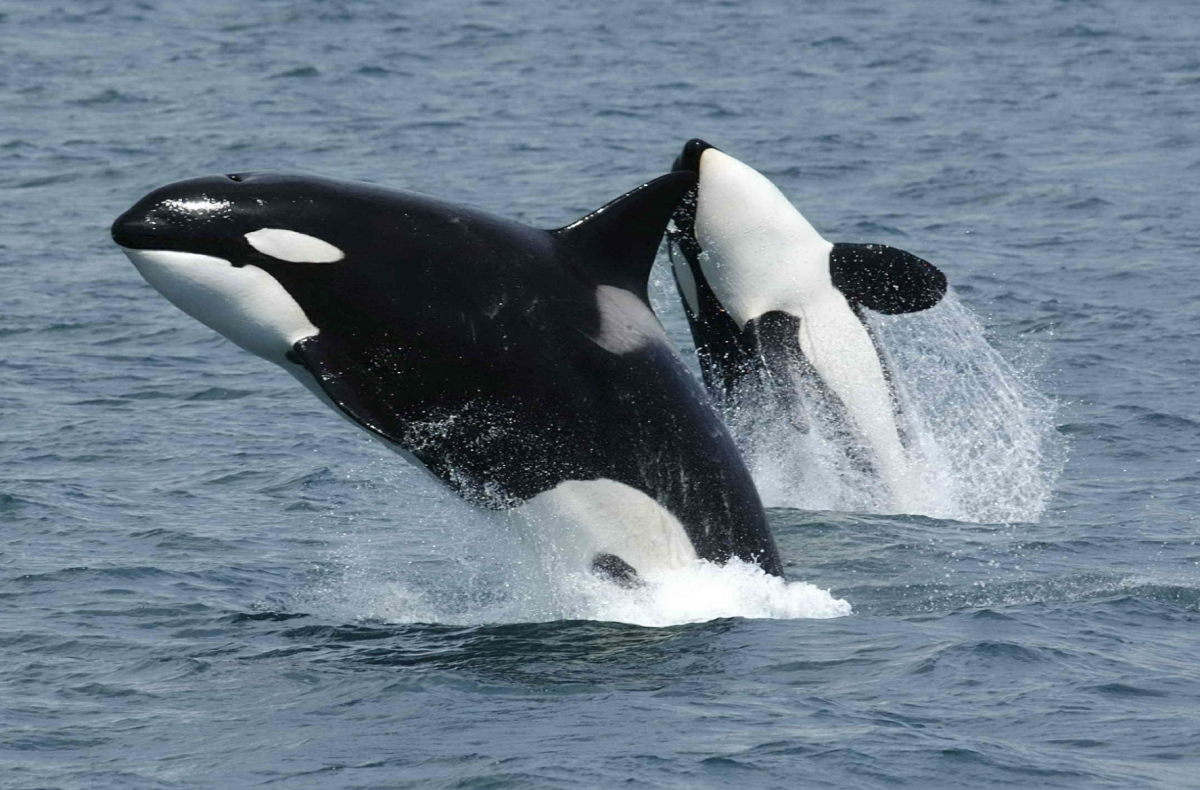One of the most dangerous industrial pollutants of the last century have been wreaking havoc on the killer whale population.
A new study published by the American Association for the Advancement of Science in the September issue of Science concludes that polychlorinated biphenyls (PCBs) are slowly wiping out some groups of these mammals, while also affecting other marine animals including seals and sharks.
Steve Bursain, an environmental toxicologist at Michigan State University says, “ It’s sobering to be made aware of the potential long-term effects of chemicals that were introduced into the environment over 80 years ago.”
PCBs were first discovered in coal tar in the late 1800s and mass produced in the 1930s. They form thick liquids that can be used as hydraulic fluids, lubricating oils, paint and concrete stabilizers, and non flammable insulation in electrical transformers.
Before scientists had linked them to cancer and immune system-, reproductive-, and endocrine-related health problems companies had already produced more than a million tons of PCBs. The United States, being the major user and producer, banned their production in 1978, but a global ban was not in place until 2004.
The problem with these pollutants is that they do not break down easily. They are still leaking into the environment from landfills and from other places they were dumped. PCBs quickly enter the food chain after being consumed by microbes and eventually build up in the fat and blubber of animals, especially killer whales.
What makes matters worse is that these animals feed on seals or other fish that have PCBs stored in their fat. Over the past few years, there has been shrinking of the killer whale populations in parts of the world where, coincidentally, there are also high levels of PCBs, despite being banned for decades.
These high levels of PCBs seem to be affecting the immune function of killer whales. In support of this, in other studies using mice, PCBs raised susceptibility to disease and impaired fertility.
The models created by Desforges and his colleagues in the current report show that of the 19 populations studied, more than half will decline and eventually dwindle and disappear within the next 50 years—all because of the effects of PCBs.
Categories:
Tigra Scientifica: Killing Killer Whales: Long Banned Toxin May Wipe Out Killer Whales
Hannah Patel, News Contributor
January 28, 2019
Photo courtesy of Pixabay
Of the 19 populations studied, more than half will decline because of PCBs effects and eventually dwindle and disappear within the next 50 years.
0
Donate to The Tiger
Your donation will support the student journalists of Clemson University. Your contribution will allow us to purchase equipment and cover our annual website hosting costs.
More to Discover









